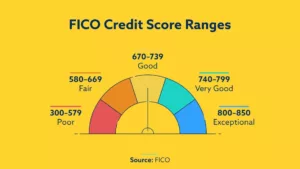If you listen to radio, you’ve probably heard ads touting reducing debt through a debt settlement company. Debt settlement is often advertised as an alternative to bankruptcy. But using a debt settlement company is not all it’s cracked up to be.
While getting out of debt sounds great, consumers using debt settlement companies often fail to realize the enormity of debt settlement. You may be able to reduce your debt but the negative impact on your credit scores may not be worth it.
If you’re considering debt settlement as a solution to debt problems, understand the dangers first.
How Debt Settlement Companies Work
The debt settlement company will review and analyze the amounts you owe to creditors and come up an estimate for reducing your debt. Sounds good right? But hold on just a moment. You will be advised by the debt settlement company to stop paying your creditors and instead, send the monthly payments to them.
The debt settlement company sets aside your monthly payments (put into some type of savings account) for future settlements of your debts. When the savings account increases to a certain amount—based on the company’s opinion—the debt settlement company calls your creditors to begin negotiating a settlement. The settlement is an amount lower than your full outstanding balance.
If your creditors agree to a settlement amount, the settlement company pays the creditors and takes a fee for the work of negotiating the settlement. This could be a flat fee or a percentage of the debt that was canceled.
So what’s the danger in using a debt settlement company?
5 Dangers in using a debt settlement company
On the surface, debt settlement sounds great. Your creditors get paid and you’re able to move on with your life debt free—Perhaps. Remember you are advised by the debt settlement company to stop making payments.
- Late payments get reported to the credit bureaus. This is the part that will come back to haunt you big-time. Late payments get reported to the credit bureaus once you become 31 days past due. Creditors don’t typically settle debts unless they’re a few months past due. That means you have to miss up to 90 days or more payments in order to begin settlement negotiations.
- Credit scores take a deep dive. Regardless of the debt settlement action, those late payments remain on your credit reports for up to seven years. That means you’ll have difficulty getting approved for credit which includes renting an apartment, getting a mortgage, car, business, student or personal loan and getting new credit cards. You may even find your credit score interfering with getting a job or a good insurance rate.
- Credit reports may show Charge-Offs. A charge-off is one of the most detrimental notations you could have on a credit report. Even though the debt settlement company successfully settles with your creditors, your account may be updated to reflect “Charged-Off Settled.” It’s a negative notation that remains for 7 years. The delinquent information isn’t erased from your credit report.
- You could owe taxes on settled debts. After debt settlement, you could also owe taxes on settled debts. Your creditors will likely send you a Form 1099-C for reporting canceled debts and the IRS expects you to include the canceled debt amount on your tax return. The Internal Revenue Service (IRS) considers forgiven debts as income and expects you to pay income taxes on the amount that was forgiven.
- Creditors could decide to sue you. The debt settlement company probably won’t tell you that your creditors don’t have to accept a lesser amount than they are owed to settle the debt. In fact, some creditors will not accept a settlement if you’re working with a debt settlement company; plus, your creditors may even become more motivated to go after you and file a lawsuit sooner than they otherwise would have if you’re working with a debt settlement company. Additionally, the debt settlement company might not mention that once you stop making your payments, the total amount you owe will increase due to added late fees and increased interest charges.
What you can do when debt is spiraling out of control
If you’re struggling to pay your debts, there are actions you can take to manage the debt on your own.
Consumer Credit Counseling. Consider consumer credit counseling that will help you enter into a debt management plan. With a debt management plan, a credit counselor will work within your budget to come up with an affordable monthly payment for all your unsecured debt. There’s a possibility of reducing your monthly payments. As long as you make your payments on time each month, consumer credit counseling does not hurt your credit.
Request a hardship program. Ask your creditors if they have a hardship program for customers who are having financial difficulty. Your creditors may offer a temporary reduction in your monthly loan or credit card payment or to reduce your credit card interest rate.
Hire an attorney. A skilled attorney can go over all of your options to provide you with practical legal advice after fully analyzing your situation. The attorney can help you figure out if you really should try to settle your debts or whether you should file for bankruptcy.
Settle debts on your own. You can arrange a debt settlement yourself and quite frankly, it often makes more sense to negotiate your own settlement. By settling your own debt you maintain control over the process plus save money you would pay to a debt settlement company or to an attorney. Keep in mind that if you settle a debt, the amount that the creditor forgives might be taxable.


















